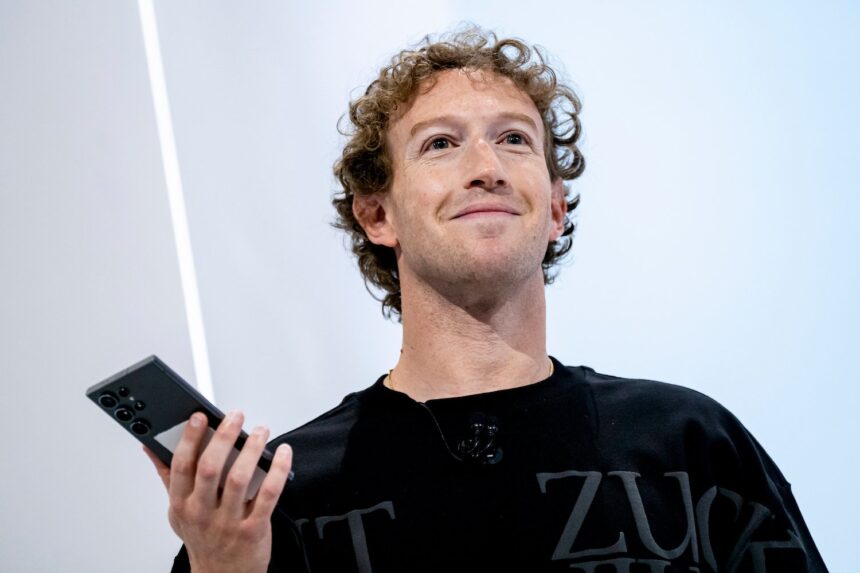There has been a lot said about Mark Zuckerberg’s sudden, intense courtship of the incoming Trump administration—dropping fact-checking in favor of X-style crowdsourcing (nobody paid attention to fact-checks, but community notes do not seem better); going on Fox News and Joe Rogan to say Facebook is all about free speech now; loosening content restrictions so that it is now acceptable to write on Facebook that gay people are mentally ill.
Listening to him, the hard pivot feels disingenuous, like Zuckerberg will do whatever is politically expedient at any given moment. Facebook is a private company and can decide what content is or is not allowed on its services—in the same way Twitter executives used to debate requests from the White House to remove content, Facebook can leave up whatever it wants. But during his first administration, President Trump has repeatedly threatened to send Zuckerberg to prison over Facebook’s censoring of conservative content, and Meta still has an FTC anti-trust trial coming up in April. Zuckerberg’s overtures look like a ploy to make all of Meta’s problems go away for a few years.
And Zuckerberg is lucky in so far as Facebook is one of the most effective advertising products ever created, and that puts him in an enviable position. It was easy for advertisers to drop Twitter (now X) because it was never a great place to advertise—the service does not require real names like Facebook, and it has never collected much useful information on its users. It is a large part of why FTC chairwoman Lina Khan is going after Meta in the first place—it has cemented its power by buying or copying competitors. Whatever you think about Zuckerberg, he is one of the best businessmen in recent history.
Major brands like Dell or Coca-Cola advertised on Twitter to reach coastal elites, while Facebook has always been successful with local, small businesses because they can target an advertisement for sandals at directly the right person, and get an almost guaranteed return—put $1 into Facebook advertisements, generate $2 in sales. It is why Facebook, Google, and Amazon now account for more than half of the entire digital advertising market. They are incredibly effective. X has always been tiny with roughly 300 million active users compared to Meta’s more than 3 billion; even Snapchat and Pinterest are larger than X. Boycotts of Meta are not going to happen in the same way they occurred with X.
Generally speaking, advertisers do not like their brands appearing next to divisive or hateful content. Coca-Cola does not want to be placed next to Neo-Nazi imagery or be seen as indirectly endorsing such content by advertising on a platform that allows it—when you think of Diet Coke, the company wants you envisioning warm feelings of polar bears and Christmas; Volkswagen does not want to be associated with Hitler anymore, and so on and so forth. To be sure, Meta is not getting rid of content moderation altogether, but it will be a lot less restrictive.
There is a new article in the Financial Times assessing the potential backfire of Meta’s new stance. Here is an excerpt:
Critics argue that crowdsourced fact-checking efforts are far slower to label falsehoods and conspiracies than professional, trained individuals, and can be manipulated by users.
Lou Paskalis, chief executive of marketing consultancy AJL Advisory and a former media executive at Bank of America, said Meta’s community notes shift “creates headwinds for marketers who are risk averse”, adding some will “reduce their reliance” on Meta as a result.
Other advertising executives described feeling “nervous” and were seeking further information from the platform on how exactly the changes would be implemented.
“Brands are entering a new world where established rules of operation can no longer be relied on,” said Patrick Reid, group chief executive at Imagination, the marketing agency.
Will Meta have to sue advertisers into continuing to spend on its platforms like Musk did with X? Probably not. Ultimately, money talks and if advertisers are still seeing a positive return on their investment, they will keep advertising on Facebook and Instagram. It is the same thing with CEOs of major companies—when they are printing money for their companies, investors forgive a lot of sins.
Advertisers likely will not abandon Meta, but that should not be interpreted as an endorsement of Zuckerberg’s moves. They will not abandon Meta because it would hurt their bottom lines.
Read the full article here












